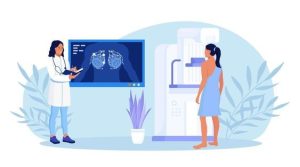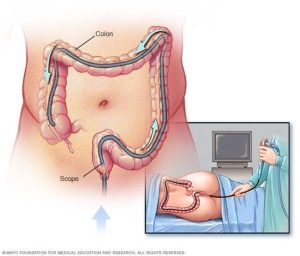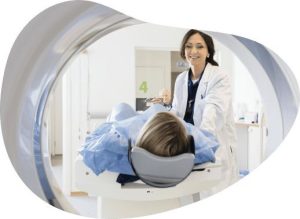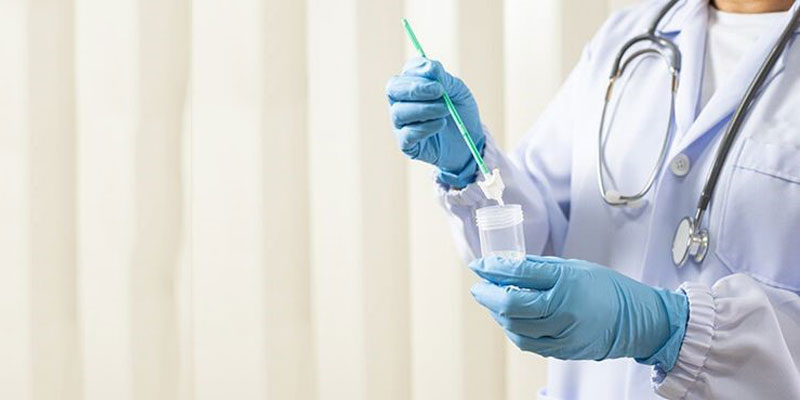Cancer tests and screenings are essential tools in early detection and monitoring of cancer. These procedures can help identify cancer at an earlier, more treatable stage, as well as assess the effectiveness of treatment.
- Types of Cancer Screenings
a. Mammography
– Description: A specialized X-ray of the breast used to detect breast cancer.
– Recommended for: Women aged 40 and older, or younger if at high risk.
– Image suggestion: A mammogram machine in use or a sample mammogram image.
b. Pap Smear (Pap Test)
– Description: A procedure to test for cervical cancer by collecting cells from the cervix.
– Recommended for: Women starting at age 21, typically every three years until age 65.
– Image suggestion: A healthcare provider performing a Pap smear.
c. Colonoscopy
– Description: A test that examines the colon for abnormalities, including polyps and cancer.
– Recommended for: Adults aged 45 and older, or earlier for those with family history.
– Image suggestion: An endoscope being used during a colonoscopy.
d. Low-Dose CT Scan
– Description: A scan that looks for lung cancer, particularly in heavy smokers or former smokers.
– Recommended for: Adults aged 50-80 with a significant smoking history.
– Image suggestion: A CT scan machine or an example of a lung CT scan image.
e. Prostate-Specific Antigen (PSA) Test
– Description: A blood test that measures the level of PSA, which can indicate prostate cancer.

– Recommended for: Men aged 50 and older, or earlier for those at high risk.
– Image suggestion: A blood sample being drawn or a PSA test result sheet.
- Importance of Cancer Screenings
– Early Detection: Screenings can catch cancers before symptoms arise, improving treatment outcomes.
– Risk Assessment: Some tests can determine an individual’s risk for developing certain cancers, leading to preventive measures.
– Monitoring: For those undergoing treatment, regular tests help assess the effectiveness of therapies.
- Limitations and Considerations
– False Positives/Negatives: Some tests may yield incorrect results, leading to unnecessary anxiety or missed diagnoses.
– Consultation Needed: Always discuss with a healthcare provider to determine the right screening schedule based on personal risk factors.
Conclusion
Regular cancer screenings are crucial for maintaining health and catching potential issues early. Individuals should consult their healthcare providers about appropriate tests based on their age, gender, family history, and lifestyle.
Got it! Here’s a series of paragraphs on cancer immunotherapy:

